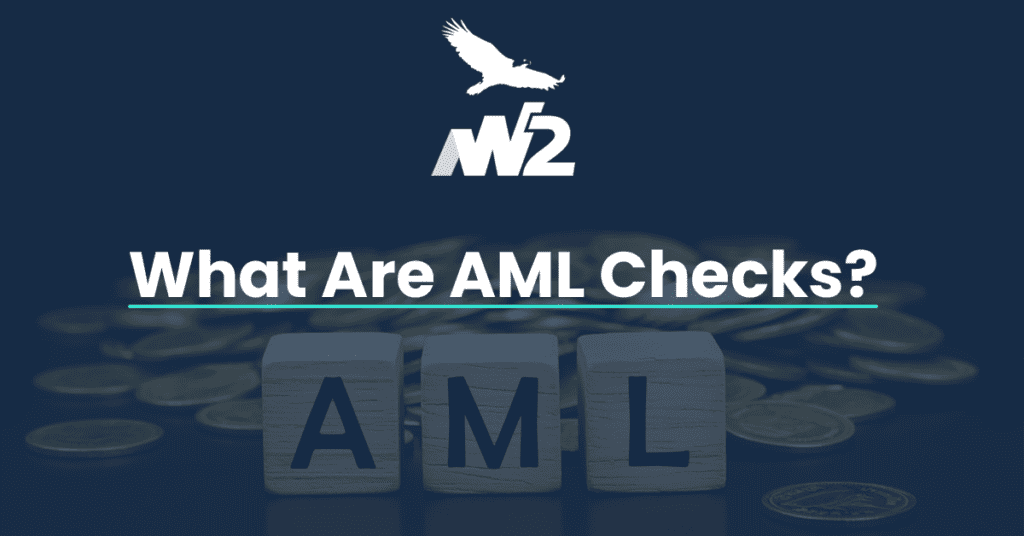Money laundering poses a significant threat to the integrity of the global financial system. To combat this illicit activity, financial institutions and businesses must implement robust Anti-Money Laundering (AML) measures. In this article, we will delve into the importance of AML checks, their significance in preventing money laundering, and how W2 can assist you in staying compliant with AML regulations.
Anti-Money Laundering still remains a significant issue for regulated businesses, with the Financial Conduct Authority (FCA) publishing £215,834,156 as fines in 2022 alone.
Significance of AML checks
Money laundering refers to the process of disguising the origins of illicitly obtained funds, making them appear legitimate. It enables criminals to profit from their illegal activities while evading detection. AML checks play a pivotal role in preventing money laundering by identifying suspicious financial transactions and individuals involved in such activities.
By conducting thorough AML checks, businesses can ensure compliance with regulatory requirements, mitigate the risk of financial crime, protect their reputation, and contribute to the overall stability of the financial system.
Understanding AML checks
AML checks involve a series of due diligence measures designed to verify the identity of customers, assess their risk profile, and detect any unusual or suspicious transactions. These checks are part of a process known as Customer Due Diligence (CDD) and typically encompass various elements, such as identifying politically exposed persons (PEPs), sanctioned individuals or entities, and through adverse media checks.
When should AML checks be used?
AML checks should be used whenever there is a need to verify the identity of customers and assess their risk profile, particularly in financial institutions and businesses handling high-value transactions. These checks are crucial in preventing money laundering, terrorist financing, and other financial crimes that pose a significant threat to the integrity of the global financial system.
Customer Due Diligence (CDD)
CDD forms the foundation of AML checks, involving the collection and verification of customer information during the onboarding process. It includes identifying the customer’s identity, assessing their business activities, understanding the source of their funds, and establishing the beneficial ownership of corporate entities.
Enhanced Due Diligence (EDD)
EDD is employed for customers who pose a higher risk due to factors such as their location, occupation, or the nature of their business. It involves conducting additional investigations and gathering more detailed information to ensure a comprehensive understanding of the customer’s activities and associated risks.
AML Ongoing Monitoring
AML checks are an ongoing process. Continuous monitoring of customer transactions and behaviour is essential to detect any changes that may indicate potential money laundering or other illicit activities. Just because a customer successfully completes onboarding, does not mean that organisations shouldn’t be notified on any changes to their situation. By utilising advanced technology and data analytics, businesses can automate the monitoring process and promptly identify suspicious patterns or transactions.
Identifying Politically Exposed Persons (PEPs)
In addition to conducting AML checks, it is crucial for businesses to identify and assess Politically Exposed Persons (PEPs) as part of their due diligence efforts. PEPs are individuals who hold prominent public positions or have close associations with such individuals. These individuals, due to their influence and access to public resources, may pose a higher risk of involvement in corruption or money laundering.
A customer flagged as politically exposed might not necessarily mean that the business has to reject said customer from onboarding, but due to PEPs being more risk than a ‘normal’ individual, it is beneficial for businesses to use PEP checks within onboarding.
Sanctions Screening
Compliance with international sanctions regimes is vital to prevent financial transactions with individuals, organizations, or countries involved in illegal activities or posing a threat to global security. Sanctions screening involves checking customer data against government and regulatory watchlists to ensure compliance with sanctions requirements.
There are a number of sanctions lists including: O.F.A.C (Office of Foreign Assets Control), US Treasury Department, French Asset Freeze List, HMT (His Majesty’s Treasury), European Union, United Nations, Office of the Superintendent of Financial Institutions, and more.
Adverse Media Screening
Adverse media refers to negative news or information related to individuals or entities that could indicate potential involvement in illicit activities, financial crimes, or reputational risks. Conducting adverse media screening is crucial to enhance AML checks and obtain a holistic view of customer risk profiles.
Adverse media solutions leverage advanced algorithms to analyse vast amounts of news articles, social media posts, and other publicly available information. By automating the adverse media screening process, this technology assists businesses in swiftly identifying any adverse mentions associated with their customers, enabling them to take appropriate risk mitigation measures.
Stay AML compliant, protect your business
In today’s complex and ever-evolving regulatory landscape, implementing robust AML checks is paramount to protect your business from the risks of money laundering, fraud, and reputational damage. By partnering with W2, you gain access to cutting-edge technology and expertise, empowering you to meet regulatory obligations and safeguard your operations.
Remember, compliance is an ongoing effort. Regularly reviewing and updating your AML checks in line with regulatory changes is vital to maintain effectiveness. W2 remains at the forefront of AML innovation, continuously enhancing our solutions to address emerging risks and regulatory requirements.
How W2 can help
As a leading provider of AML solutions, W2 offers cutting-edge technology and expertise to assist businesses in combating money laundering effectively. Our comprehensive suite of AML solutions automates and streamlines the compliance process, minimizing the risk of manual errors and ensuring regulatory adherence.
With our robust identity verification and screening capabilities, we enable businesses to perform efficient customer due diligence and ongoing monitoring. Our advanced algorithms and data intelligence help identify potential risks, flag suspicious activities, and provide real-time alerts for further investigation.
To learn more about our AML solutions and how W2 can help your business stay compliant with anti-money laundering regulations, please contact us today. Simply submit the contact form here, and one of the team will be in touch.

